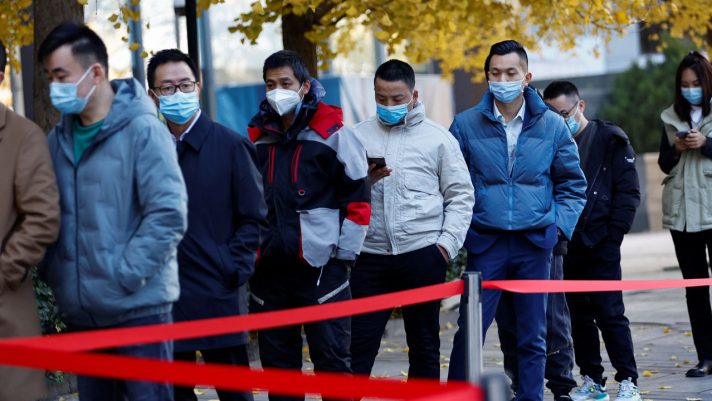China will scrap quarantine measures for overseas arrivals starting January 8, health authorities announced Monday, after nearly three years of strict pandemic border restrictions.
The National Health Commission announced the downgraded containment measures for Covid-19 in an online notice, adding that travellers would only need a PCR test taken 48 hours pre-flight to enter China.
The announcement is the latest move by Beijing to loosen its zero-Covid regime, after it abruptly dropped mandatory testing and lockdowns earlier this month.
“According to the national health quarantine law, infectious disease quarantine measures will no longer be taken against inbound travellers and goods,” the National Health Commission (NHC) said.
“People must take a PCR test in the 48 hours before arriving in China,” the notice said, adding that restrictions limiting the number of international flights will also be abolished.
The measures will take effect from January 8, when Covid will be downgraded from the top tier of inefectious diseases, Class A, to a second tier Class B, the NHC said in a separate notice Monday.
Unlike most of the rest of the world where people have transitioned to living with the pandemic, China had until recently maintained harsh restrictions and largely sealed itself off.
Since March 2020, all passengers arriving in the country had to undergo at least two weeks of mandatory centralised quarantine, later increased to three weeks.
The measures heavily disrupted international tourism and business travel, further hampering the country’s Covid-battered economy.
Uneven quarantine hotel conditions, harsh visa restrictions and steep flight prices caused by heavily reduced international routes also precipitated a mass exodus of expatriates from the country in recent years.
But earlier this year, China slightly loosened visa restrictions, allowing direct relatives of Chinese citizens to apply for family reunion visas.
An increasing number of world leaders have also visited since the Beijing Winter Olympics in February.








